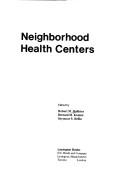| Listing 1 - 10 of 969 | << page >> |
Sort by
|
Book
ISBN: 9781912273225 1912273225 Year: 2019 Publisher: London: Legal Action Group,
Abstract | Keywords | Export | Availability | Bookmark
 Loading...
Loading...Choose an application
- Reference Manager
- EndNote
- RefWorks (Direct export to RefWorks)

ISBN: 0669925101 Year: 1974 Publisher: Lexington Lexington books
Abstract | Keywords | Export | Availability | Bookmark
 Loading...
Loading...Choose an application
- Reference Manager
- EndNote
- RefWorks (Direct export to RefWorks)
Book
ISBN: 0309482100 0309482089 Year: 2018 Publisher: Washington, DC : The National Academies Press,
Abstract | Keywords | Export | Availability | Bookmark
 Loading...
Loading...Choose an application
- Reference Manager
- EndNote
- RefWorks (Direct export to RefWorks)
"Millions of Americans of all ages face the challenge of living with serious illnesses such as advanced cancer, heart, or lung disease. Many people with serious illness are increasingly cared for in community settings. While the number of community-based programs to provide care for those with serious illness has grown significantly, the quality of care provided is not consistent across geographic locations or care settings. Care for the serious illness population often features gaps in coordination across sites of care and poor patient and family perceptions as to the quality of care provided. In an effort to better understand and facilitate discussions about the challenges and opportunities related to identifying and implementing quality measures for accountability purposes in community-based serious illness care, the National Academies of Sciences, Engineering, and Medicine held a public workshop on April 17, 2018, in Washington, DC. Workshop participants explored the current state of quality measurement for people with serious illness, their families, and caregivers, with the aim of identifying next steps toward effectively implementing measures to drive improvement in the quality of community-based care for those facing serious illness. This publication summarizes the presentations and discussions from the workshop"--Publisher's description.
Book
Abstract | Keywords | Export | Availability | Bookmark
 Loading...
Loading...Choose an application
- Reference Manager
- EndNote
- RefWorks (Direct export to RefWorks)
This guide, developed collaboratively by the World Health Organization (WHO) and the United Nations Children's Fund (UNICEF), focuses on a people-centered design approach for tailoring immunization programs. It emphasizes understanding and addressing the specific needs and perspectives of communities to improve vaccine acceptance. The guide outlines a cyclical process comprising four phases: Diagnose, Design, Implement, and Evaluate, aimed at overcoming barriers to vaccination. Intended for use by health and vaccination professionals at national or subnational levels, it provides strategies to engage stakeholders and adapt programs for various priority groups and vaccines throughout life. The guide also highlights the importance of local ownership, transparency, and evidence-based design, particularly in low-resource settings.
Book
Abstract | Keywords | Export | Availability | Bookmark
 Loading...
Loading...Choose an application
- Reference Manager
- EndNote
- RefWorks (Direct export to RefWorks)
This guide, jointly developed by the World Health Organization (WHO) and the United Nations Children's Fund (UNICEF), outlines a human-centered design (HCD) model for tailoring immunization programs. It emphasizes the importance of understanding and addressing the needs and perspectives of target communities to improve vaccine acceptance. The guide is structured into four phases: diagnosis, design, execution, and evaluation, and aims to help health professionals at both national and subnational levels to overcome barriers to immunization. It stresses stakeholder involvement, transparency, and local accountability to create effective and sustainable immunization programs.
Book
Abstract | Keywords | Export | Availability | Bookmark
 Loading...
Loading...Choose an application
- Reference Manager
- EndNote
- RefWorks (Direct export to RefWorks)
This guide, developed by the World Health Organization (WHO) and the United Nations Children’s Fund (UNICEF), provides a human-centred design approach for tailoring immunization programs. It outlines a cyclical process in four stages—Diagnose, Design, Implement, and Evaluate—to help health and immunization systems identify and address barriers to vaccination. The guide emphasizes local community engagement and stakeholder participation to create responsive and effective immunization strategies. It is designed to be adaptable, user-friendly, and applicable to various public health campaigns and life stages.
Book
Year: 2017 Publisher: Edmonton, Alberta : Institute of Health Economics,
Abstract | Keywords | Export | Availability | Bookmark
 Loading...
Loading...Choose an application
- Reference Manager
- EndNote
- RefWorks (Direct export to RefWorks)
Book
Year: 2008 Publisher: Köbenhamn : Nordiska ministerrådet,
Abstract | Keywords | Export | Availability | Bookmark
 Loading...
Loading...Choose an application
- Reference Manager
- EndNote
- RefWorks (Direct export to RefWorks)
Book
ISBN: 0534979769 Year: 1981 Publisher: Belmont, Calif. : Lifetime Learning Publications,
Abstract | Keywords | Export | Availability | Bookmark
 Loading...
Loading...Choose an application
- Reference Manager
- EndNote
- RefWorks (Direct export to RefWorks)
Book
Year: 1977 Publisher: Philadelphia (Pa.): Saunders
Abstract | Keywords | Export | Availability | Bookmark
 Loading...
Loading...Choose an application
- Reference Manager
- EndNote
- RefWorks (Direct export to RefWorks)
| Listing 1 - 10 of 969 | << page >> |
Sort by
|

 Search
Search Feedback
Feedback About UniCat
About UniCat  Help
Help News
News